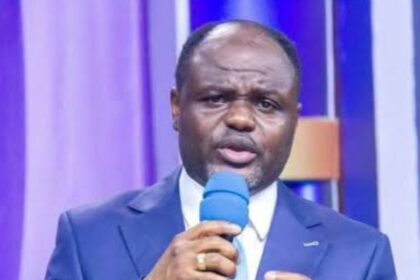Nasir el-Rufai, governor of Kaduna state, says the country needs to choose competence over zoning when electing its president.
In Nigeria, political offices, including the presidency, are rotated on the basis of geographical zones.
Olusegun Obasanjo from Ogun state in the south-west was president between 1999 and 2007. He was succeeded by Umaru Musa Yar’Adua from Katsina state in the north-west. Following Yar’Adua’s death in 2010, Goodluck Jonathan, his then deputy from Bayelsa in the south-south took over the mantle of leadership.
Jonathan’s historical defeat in the 2015 elections saw Muhammadu Buhari from Katsina emerge as president.
Following Buhari’s second term victory, stakeholders have begun clamouring that the presidency needs to return to the south.
But el-Rufai, who has been mentioned among those eyeing the 2023 presidency though he is yet to declare interest in it, said competence should be chosen over zoning as far as the number one seat in the country is concerned.
In the prologue which he contributed to “Power of Possibilities and Politics of Change in Nigeria”, a book by Salihu Lukman, director-general of the Progressives Governors’ Forum, el-Rufai argued that zoning has to be abandoned.
The governor described zoning as “opaque”, adding that it is a barrier to political equality.
“Even with our success in the 2015 elections, there is room for improvement. Barriers to political equality, such as our seemingly entrenched though informal rule for zoning candidacies according to regions of origin, need to be de-emphasised and ultimately abandoned in favour of an emphasis on qualification, competence and character,” el-Rufai wrote.
On the victory of the All Progressives Congress (APC) in 2015, el-Rufai wrote: “A unified opposition preferably merged into a single and well-structured political party well ahead of the next election cycle, and with transparent processes and progressive policies.
“A presidential candidate widely seen as credible and reformist to provide a sharp contrast to incumbents usually fattened by years of lazy, incompetent and corrupt rule.
“Honest elections that guarantee that votes count, using a mixture of competent electoral commission leadership and, crucially, deploying technologies for voter verification that drastically reduces electoral fraud.
“Credible elections are enemies of voter apathy. They enhance democratic legitimacy and citizen participation.
“Continuous engagement of the international community, particularly in the leading stable democracies as well as in multilateral institutions, to supply a crucial external fillip to the electoral process.”


